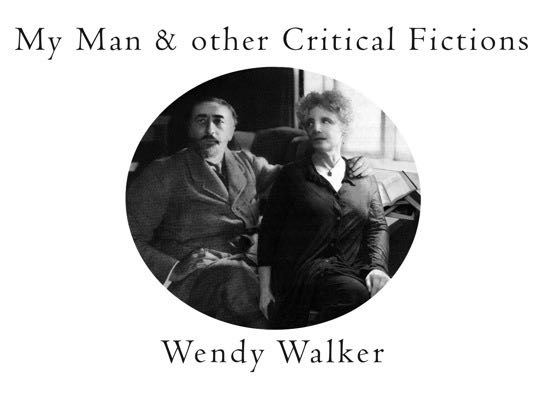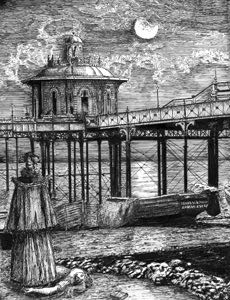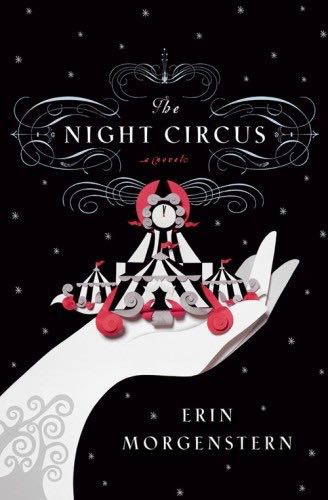
September - October 2011
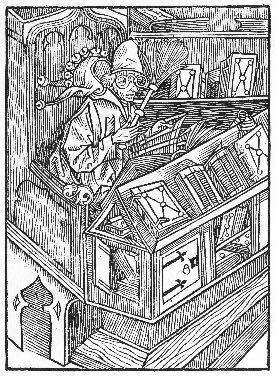
18-19 October 2011
The Endless Bookshelf : At Sea
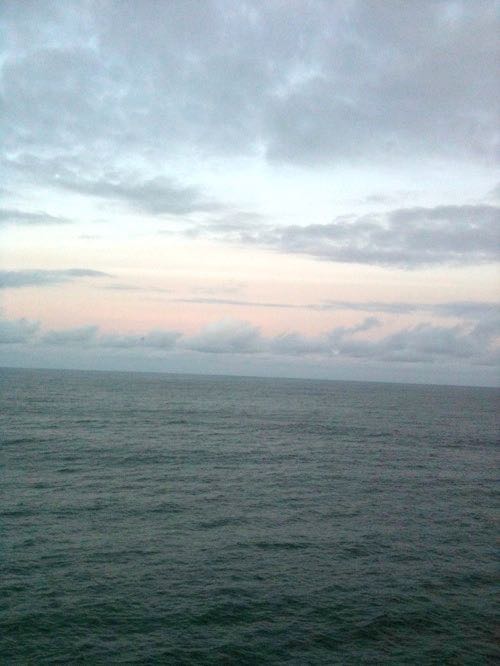
The view from the porthole
Your correspondent is at sea, en route for the port of . . . Brooklyn. Please make a note of the date of the Critical Fiction Symposium (Tuesday 25 October) and come along for an evening of literary conversation (RSVP).
Current reading :
— Joseph Conrad. Victory. An Island Tale [1915 ; Everyman’s Library, 1998]. Conrad excels at forcing complex characters into collision and conflict : no art without incident producing change. Axel Heyst has just given refuge to Martin Ricardo, “ Mr. Jones ”, and their slave Pedro in one of the abandoned bungalows of the Tropical Belt Coal Company.
— Eamonn Gearon. The Sahara. A Cultural History. Signal Books, 2011. [Series title : Landscapes of the Imagination]. Wide-ranging and engaging overview of the lands of the Sahara from prehistory and the vanished Garamantes to Alexander the Great, from the quest for Timbuktu to literature and cinema, and from European exploration and land grab to contemporary political uncertainty and adventure tourism.
Recent reading :
— Valerio Varesi. River of Shadows . Translated from the Italian by Joseph Farrell. [Il fiume delle nebbie , 2003] ; MacLehose Press. Quercus, [2010]. Deeply atmospheric detective novel set on the River Po in autumn flood, new murders with old roots in the struggle between Fascists and Communist partisans at the end of the second world war. The narrative voice of the protagonist, police commissario Soneri, is compelling, and deftly calls forth landscape and daily life and local food and drink.
— William Dalrymple. White Mughals. Love and Betrayal in Eighteenth-Century India. [2002] ; Flamingo/HarperCollins paperback, [2003]. Multi-generation story of James Achilles Kirkpatrick, British Resident in Hyderabad 1798-1805, who mastered Indian languages and adopted local dress and custom, and his Indo-Persian wife Khair an-Nissa, and their children. The sensational subtitle distracts from the substantial argument Dalrymple makes about the change in British attitudes and comportment towards the Hindu and Muslim populations of Hindustan (and of mixed race children) following upon the appointment of Lord Wellesley as Governor General. Wellesley (whose younger brother Arthur also served in India before the Napoleonic campaigns that earned his dukedom) initiated a series of policies that ended the philo-Hindustani arrangements evolved in the course of dealing with Indian principalities as independent states. The racism of Victorian England and beyond was a learned construct and a calculated mode of behavior ; the ties between Hindustan and England are far more entangled and far older than one might suspect.
— J. Meade Falkner. Moonfleet . [1898], Penguin Books, [1964] (Puffin paperback). A good story of mid-eighteenth-century smuggling and adventure, excellent atmosphere and the Dorset setting beautifully invoked. A classic novel of the sea by a most unusual writer, an international arms merchant whose entry in the Dictionary of National Biography records the following, “ Despite finding that all women looked as alike as shelled peas, on 18 October 1899 he married [. . .] Bachelordom was his natural vocation : in his own phrase he regarded women at Oxford University with the repugnance he otherwise reserved for black beetles. He and his wife had no children. ” I look forward to reading The Nebuly Coat (1903) and The Lost Stradivarius (1895) “ a Gothic romance about the haunting of a Victorian violin-playing baronet by an eighteenth-century rake with occult tastes ”.
— Henry James. The Aspern Papers . Penguin paperback.
— — — —
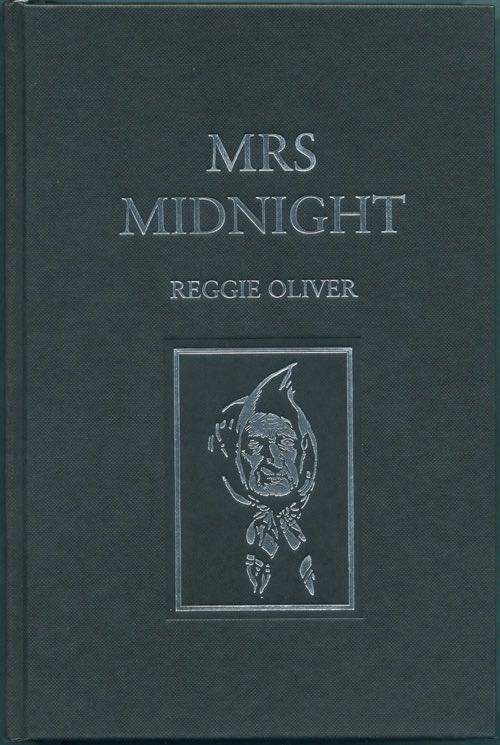
— Reggie Oliver. Mrs Midnight
and other stories . With illustrations by the author. Tartarus
Press, [2011]. This is a superb collection, tremendously ambitious
in range and voice, and simply brilliant in execution. Oliver plays
with the form and conventions of the ghost story to excellent effect. ‘ Mrs
Midnight ’ of the title is a mad transvestite vaudevile
performer and a strong candidate for Jack the Ripper ; it is
a nice gruesome tale of survival across the centuries with fine antiquarian
roots in late-Victorian theater. In ‘ The Giacometti Crucifixion ’ Oliver
creates the historic figure of A.C. Lincoln, “ described
by some, rather dismissively, as ‘ a sort of Oxford M.R.
James ’ ” and makes a dramatic reading of “ the
title story from what is generally though to be Lincoln’s most
accomplished collection, Quieta Non Movere ”,
the essential core of a story of sleazy academic politics, bogus
charity, and art fraud. The story by “ A.C. Lincoln ” is
in itself a remarkable creation ; all the more notable, then,
that Oliver has woven Quieta Non Movere into a contemporary
Oxford ghost story.
‘ The Mortlake Manuscript ’ invents an imaginary book of
the highest antiquity and mystery and releases it upon a suitably naïve
academic, with lovely consequences. ‘ The Philosophy of the Damned ’ is
a lost chapter of the history of the Crimean theater in the time of the struggle
between the Bolsheviks and the White Russian forces ; it is rich in colorful
minor characters and has something of the feel of Bulgakov. ‘ A Piece
of Elsewhere ’ is a dark and unsettling episode, a deft narration
in the voice of a man recalling an incident in his childhood, with some charming
passages :
. . . fitful sunshine, a cold wind and the odd spit of rain. This was the weather which I remember prevailing during my entire stay at ‘ Dovercotes ’, but I could be mistaken. Memory has a way of being true to the mood rather than the fact.
I first learned of the work of Reggie Oliver last year, when he read ‘ Minos or Rhadamanthus ’ at the Halifax Ghost Story Festival to a small and captivated audience. It is a beautiful, deeply twisted ghost story of minor public school education, cricket, and the Great War. It is truly moving and rewards reading, and re-reading. Mrs Midnight and other stories is one of the best books I have read this year.
8-9 October 2011
Westbourne, Tyburn, Fleet, Wallbrook, Peck/Earl’s Sluice, Neckinger, Effra, Wandle
— Tom Bolton. London’s Lost Rivers. A Walker’s
Guide . With photography by SF Said. [Strange
Attractor Press, 2011].
A detailed geographical history of London in dispersed narrative, with keen
eye for irony and change. And then there is this lovely sentence : “ Tracing
the Wallbrook is an act of faith and resurrection. It is a river walk without
a river, offering only tantalising hints that there was once water here. ” A
tiny, stylish book with dreamy, exotic illustrations in black and white throughout,
eight color plates, and route maps for the river walks.
The Man with Many Names : Brian O’Nolan / Flann O’Brien
http://www.bbc.co.uk/iplayer/episode/b015ck96/The_Man_with_Many_Names/
Excellent, hilarious BBC retrospective on the occasion of the centenary of Brian O’Nolan.
CRITICAL FICTION SYMPOSIUM : An Invitation
Temporary Culture and Henry Wessells are pleased to announce a Critical Fiction Symposium on Tuesday 25 October 2011 to celebrate the publication of a new book by Wendy Walker.
MY MAN & OTHER CRITICAL FICTION is an original collection of 8
critical fictions on Joseph Conrad’s Nostromo ,
King Lear, Olaudah Equiano, Harry Mathews, and other writers and texts.
The critical fiction is a literary mode that takes as its subject another
literary work and treats of that work’s construction, obsessions,
and sources in narrative and poetic, rather than expository/critical
terms. Wendy Walker is one of the chief proponents of the critical
fiction today; some of her predecessors include Jean Rhys, Jorge Luis
Borges, Angela Carter, and Guy Davenport. Participants will include
WENDY WALKER, RON JANSSEN, JENNIFER NELSON, JOHN CROWLEY, and HENRY
WESSELLS. Join us for an evening of wide-ranging literary conversation.
WENDY WALKER is author of a modern masterpiece, The
Secret Service (1992), and the formally innovative Blue Fire, A
Poetic Nonfiction (Proteotypes, 2009), and several collections of short
fiction. With her husband, author Tom LaFarge, Walker directs the publishing
side of the Proteus Gowanus Gallery/Reading Room in Brooklyn. She is at work
on Sexual Stealing , an inquiry into the origins of British
Gothic fiction in eighteenth-century Jamaica and Haiti.
RON JANSSEN is co-translator of three volumes of short stories
by Chinese author Can Xue and teaches courses in exploratory writing and
comparative rhetoric at Hofstra University.
JENNIFER NELSON recently completed her M.F.A. in poetry
at New York University and is a doctoral candidate in the history of art
at Yale University. She currently serves as poetry editor of Epiphany magazine
( www.epiphanyzine.com ).
JOHN CROWLEY is the author of Little, Big and
the acclaimed Ægypt quartet. He teaches creative writing
at Yale University.
HENRY WESSELLS is author of Another green world and
publisher of Temporary Culture and the Endless Bookshelf. He is an antiquarian
bookseller with James Cummins Bookseller in New York City.
Date : Tuesday 25 October 2011, 6:00 to 8:00 p.m.
Location : The Grolier Club, 47 East 60th Street, New York,
NY 10022.
RSVP to : Tom La Farge, tel. 917-400-2187 ; or Henry Wessells,
electronym wessells@aol.com
Copies of MY MAN & OTHER CRITICAL FICTION will be available for purchase at the Symposium. The author will be pleased to sign copies afterwards.
Further details at : http://criticalfiction.net .
In Today’s Post
— Reggie Oliver. Mrs Midnight and other stories . With illustrations by the author. Tartarus Press, [2011]. He read “ Minos or Rhadamanthus ” at the Halifax Ghost Story Festival last year. Published 30 September, now out of print.
The Brighton Redemption by Reggie Oliver
Recent reading :
— Mario Vichi. Death in August. The First Inspector Bordelli Mystery . Translated by Stephen Sartarelli. Hodder, [2011]. A very satisfying detective novel with regional character and charm, a voyage to Florence in the early 1960s.
— Joe Haldeman. Guardian. Ace Books. [2002]. Dedication copy, decorated and inscribed by the author and lent to me by the dedicatee. Interesting tale of voyaging through the universes, drawing upon the Raven in Pacific Northwest Indian cultures, with an astonishing vision at the core. The framing of the narrative is deft, and its concision is exemplary.
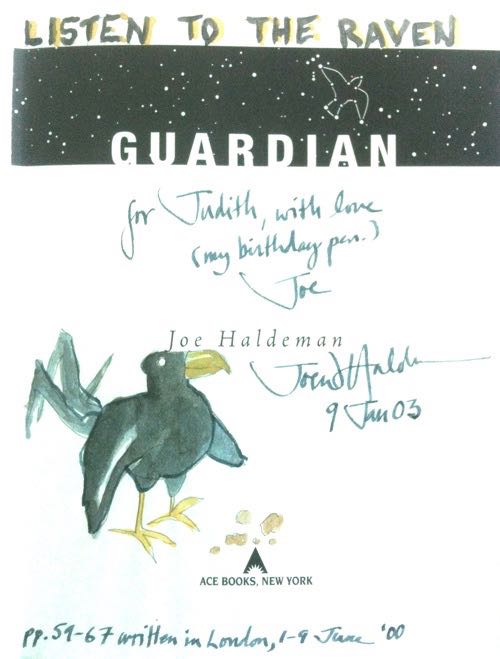
— — — —
— Boris Akunin. The Diamond Chariot. The Further Adventures of Erast Fandorin. Translated from the original Russian by Andrew Bromfield. Weidenfeld & Nicolson (Orion), 2011. historical thriller conflating exotic japonoiserie with the proto-history of the Russian revolution, almost steampunk in its sensibility, in the end too irritating in its narrative techniques and tones (and too violent). Not sure if the failings in tone (bad Edwardian clichés, racism, and inferior snippets of Japanese verse) are to be assigned to the translator or to the original.
— Ruth Rendell. The Vault . Hutchinson, [2011]. Nicely braided plot across decades, though a few aspects seemed excessively topical & contrived.
— Victor Gray. Bookmen : London. 250 Years of Sotheran Bookselling . Henry Sotheran Ltd., [2011]. Solid, well documented history of a great book shop, with attention to the wider context of the London book trade and developments in the world of antiquarian. Two aspects are especially interesting: on the one hand the great bibliographical finds and triumphs ; and on the other the accounts of the life of a book shop (apprentices, managers, bookselling during wartime, etc.) and of the process of change.
— Jonathan Lethem. Chronic City . Doubleday, 2009. Crazy funny novel of New York City and friendship.
— Shelley Fisher Fishkin. Was Huck Black ? Mark Twain and African-American Voices . Oxford University Press, 1993. Distracting title, interesting chain of ideas, well argued. “ Twain helped his fellow writers learn, in very practical ways, how to write books that ‘ talked ’ ”.
— — — —
— Erin Morgenstern. The Night Circus. A Novel . Doubleday, [2011]. Splendid visuals, some peculiarly passive language ; my reading was colored with questions of how the tale is told : the narrative is ultimately resolved as a Club Story.
— Henning Mankell. The Fifth Woman . Translated from the Swedish by Steven T. Murray. Vintage Crime/Black Lizard, [2011]. Your correspondent found this heavy going, a little too flat. Steven T. Murray also translated Helene Tursten, Detective Inspector Huss (noted in July), which was much more closely focused and rewarding.
— Mary Beard. The Invention of Jane Harrison . Harvard University Press, [2000]. Harrison “ changed the way we think about the ancient Greeks ”. As a book about the impossibility of biography, Beard tells (& documents) pretty good stories.
— Russell H. Greenan. The Secret Life of Algernon Pendleton . Random House, [1973]. Existential horror, with passages that fly.
Cackle
Having re-read Bleak House, I find myself reflecting upon Inspector Bucket’s Twitter-feed : a dark, fully anonymous cackle of rumor & truth. While Bucket might know his dark cackle sources, they might not know him : a delicate balance of truth and lies ; how anonymous is anonymity ?
Cackle of ravens, crows, starlings, grackles, & other dun birds ; I suppose I had been musing on this since I saw a tattoo of a large raven upon a broken branch on a woman’s back one summer day in Brooklyn. Of course some carrion-bird has parked the cackle domain ; this one is for someone else to untangle.
Seen in Brooklyn : [And Comic Booklets]
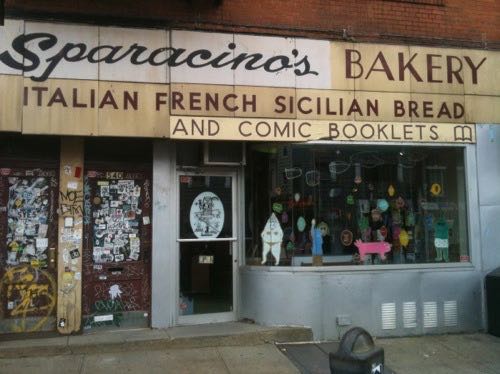
Desert Island, 540 Metropolitan Ave., Brooklyn
“ There is no Irish word for ‘ no ’ . . . ”
“ There is no Irish word for ‘ no ’ . . . ” — from the essay “ Reinventions of the Gaelic : A Primer ” by Greg Londe, in the Princeton University Library catalogue The Cracked Lookingglass. Highlights from the Leonard L. Milberg Collection of Irish Prose Writers [2011]
[Discuss …]
1 September 2011
My Man and other Critical Fictions by Wendy Walker
Temporary Culture is pleased to report that My Man and other Critical Fictions by Wendy Walker is in press and will be available at the end of October as announced. Click on the image above or here for more details. It will be a beautiful book.
Current reading :
— Joseph Conrad. Almayer’s Folly. A Story of an Eastern River (1895).
— Charles Dickens. Bleak House . [Re-read] I could not help myself, I picked it up again, and am thoroughly involved. What a book !
— Matt Beynon Rees. The Fourth Assassin. An Omar Yussef Mystery . Soho paperback, 2010.
Next up :
— Peter Straub. Lost Boy Lost Girl. A Novel . Random House, 2003
Found in the Attic ; or,
Hiding in Plain Sight
“
A Day Like Any Other ” by James Tiptree, Jr., in Foundation 3
(1973)
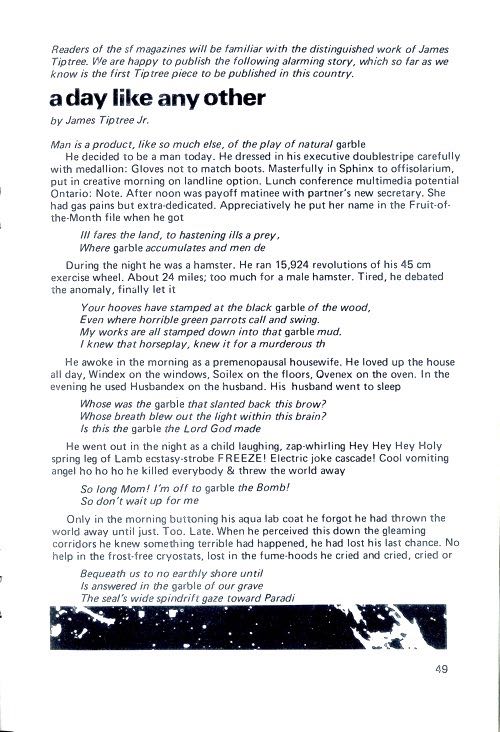
Another reason why one keeps back issues and books on shelves : I just happened to be looking through my run of Foundation and came across this fascinating page, which I had never seen before. The piece reads almost like a gloss on Pamela Zoline’s “ The Heat Death of the Universe ” (1967), with which it is almost exactly contemporary : James Tiptree, Jr., first sent the story to Harry Harrison in 1968 (as reported in the notes to Meet Me at Infinity [2000], where it was collected). “ A Day Like Any Other ” does seem to contain in miniature and in plain sight all the concerns of its author, Alice Sheldon. The piece (and its publication in Foundation ) are not noted in Julie Phillips’ exemplary biography.
The six garbled extracts are from a variety of sources : Sir Charles Sherrington, from the preface to the 1951 edition of Man on His Nature ; Oliver Goldsmith, “ The Deserted Village ” ; W.B. Yeats, “ On a Picture of a Black Centaur by Edmund Dulac ” ; Edwin Markham, “ The Man with the Hoe ” ; Tom Lehrer, “ Song for World War III ” ; and Hart Crane, “ Voyages ”.
Ragged Edges
“ Truth uncompromisingly told will always have its ragged edges ”
— Herman Melville
(quoted by Cornel West in his New York Times essay, “ Dr. King Weeps From His Grave ” (aka “ I Had a Dream, But . . . ”)
Recent reading :
— Joseph Conrad. Works . . . Vol. Three, The Nigger of the “Narcissus” & Typhoon .
— Rex Stout. And Be a Villain (1948 ; Bantam paperback, [199], 23rd printing).
— Ian Rankin. The Complaints. (2009 ; Little, Brown, [2011]).
— Joseph Conrad. The Secret Agent. A Simple Tale (1907).
“ The terrorist and the policeman both come from the same basket. ”
“ . . . because I wanted to get it right ”
The lovely Brian Aldiss, in his TLS review of Out of This World, the science fiction exhibition at the British Library, observes “ I was never commissioned to write my history of SF, Billion Year Spree . . . I did it off the cuff, out of love, because I wanted to get it right ”.
I want to read this book : the Bodleian Library’s selection of his essays : Brian Aldiss, An Exile on Planet Earth (“ to be published this autumn ”).
— — — —
Out
of This World (at the British Library through 25 September).
http://www.bl.uk/whatson/exhibitions/outof/about/index.html
This creaking and constantly evolving website of the endless bookshelf : I expect that some entries will be brief, others will take the form of more elaborate essays, and eventually I will become adept at incorporating comments or interactivity. Right now you’ll have to send links to me, dear readers. [HWW]
electronym : wessells
at aol dot com
Copyright © 2007-2011
Henry
Wessells and individual contributors.
Produced by Temporary
Culture, P.O.B. 43072, Upper Montclair, NJ 07043 USA.

